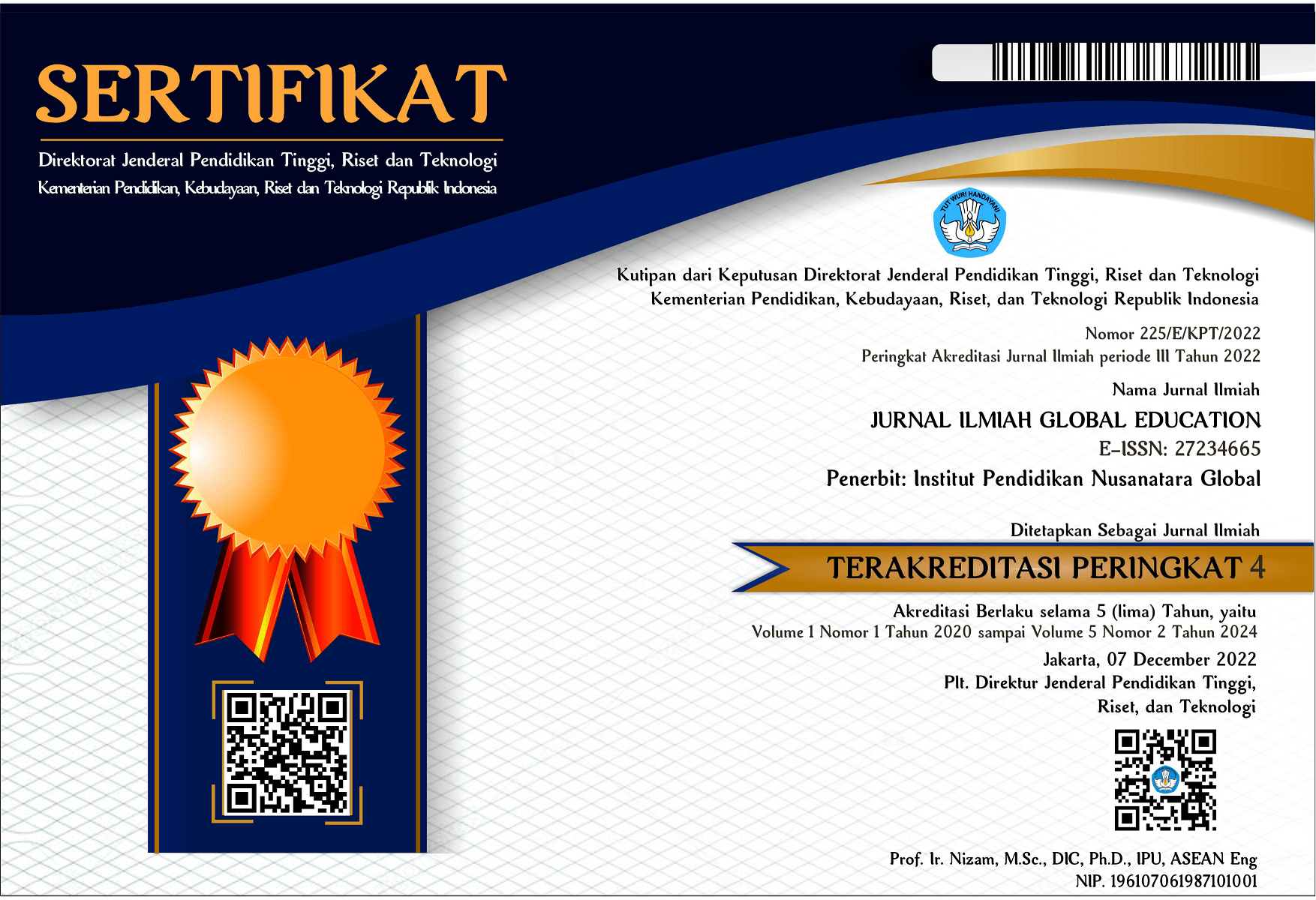THE BEHAVIORIAL PHENOMENON OF FRIEND WITH BENEFIT OF ALTER BASE @FWBSMG ON TWITTER
DOI:
https://doi.org/10.55681/jige.v4i1.610Keywords:
Alter Ego, Alter Base, Friend with Benefit, Social Media, TwitterAbstract
The emergence of alter ego accounts on Twitter triggers a new phenomenon called "friend with benefit," known as FWB. This phenomenon arises because there is a place to share information and communicate with each other. This FWB behavior is mushrooming on social media with an alter ego account, a second account aimed at seeking FWB, and a means of more unrestrained self-expression. This study aims to describe the FWB phenomenon, identify the forms of FWB behavior, and determine how the alter ego's motives account for FWB behavior. The method used in this research is qualitative content analysis with a qualitative approach. The method obtained is based on observations of @FWBSmg tweet content, interviews, and document review. The results of this study indicate that the FWB phenomenon carried out by alter ego accounts on Twitter is carried out because they want to find satisfaction both sexually and emotionally. Not only that but FWB is also conducted to find friends to chat and hang out with. The results of this study also show that the alter ego account is used as a second account to search for FWB and that the pattern used by the alter ego in searching for FWB on Twitter is also supported by the alter base community named @FWBSmg. Alter ego accounts send menfess with the gender terms "M" for male and "F" for a female when looking for FWB. They are also sending menfess photos by covering their faces with stickers; which is done to hide their real identities in public.
Downloads
References
Alfalahi, K., Atif, Y., & Harous, S. (2013, August). Community Detection in Social Networks through Similarity Virtual Networks. In Proceedings of the 2013 IEEE/ACM international conference on advances in social networks analysis and mining (pp. 1116-1123).
Annur, C. M. (2022). Pengguna Twitter Indonesia Masuk Daftar Terbanyak di Dunia, Urutan Berapa. Kata Data.
Atkinson, J. D. (2017). Journey into social activism: Qualitative approaches. Fordham University Press.
Bisson, M. A., & Levine, T. R. (2009). Negotiating a Friends with Benefits Relationship. Archives of sexual behavior, 38, 66-73.
Cama, E. (2021). Understanding Experiences of Sexual Harms Facilitated through Dating and Hook Up Apps among Women and Girls. In The Emerald International Handbook of Technology-Facilitated Violence and Abuse (pp. 333-350). Emerald Publishing Limited.
Chen, S. C., & Lin, C. P. (2019). Understanding the Effect of Social Media Marketing Activities: The Mediation of Social Identification, Perceived Value, and Satisfaction. Technological Forecasting and Social Change, 140, 22-32.
Gao, W., Wei, J., Li, Y., Wang, D., & Fang, L. (2023). Motivations for Social Network Site Use and Users' Well-Being: Mediation of Perceived Social Support, Positive Self-Presentation and Honest Self-Presentation. Aslib Journal of Information Management, 75(1), 171-191.
Hassan, H., Hsbollah, H. M., & Mohamad, R. (2022). Examining the Interlink of Social Media Use, Purchase Behavior, and Mental Health. Procedia Computer Science, 196, 85-92.
Hesadiwana, B., & Syafrini, D. Motif Penggunaan Akun Alter Ego di Media Sosial Instagram Pada Remaja Kota Padang. Jurnal Perspektif: Jurnal Kajian Sosiologi dan Pendidikan Universitas Negeri Padang, 5(1), pp. 27-36.
Kim, H. (2014). Enacted Social Support on Social Media and Subjective Well-Being. International Journal of Communication, 8, 21.
Kusumasondjaja, S. (2018). The Roles of Message Appeals and Orientation on Social Media Brand Communication Effectiveness: An Evidence from Indonesia. Asia Pacific Journal of Marketing and Logistics, 30(4), 1135-1158.
Liang, M., Xin, Z., Yan, D. X., & Jianxiang, F. (2021). How to Improve Employee Satisfaction and Efficiency through Different Enterprise Social Media Use. Journal of Enterprise Information Management, 34(3), 922-947.
Marcum, C. D., Zaitzow, B. H., & Higgins, G. E. (2022). The Role of Sexting and Related Behaviors to Victimization via Nonconsensual Pornography: An Exploratory Analysisof University Students. Journal of Aggression, Conflict and Peace Research, 14(1), 43-60.
Ostic, D., Qalati, S. A., Barbosa, B., Shah, S. M. M., Galvan Vela, E., Herzallah, A. M., & Liu, F. (2021). Effects of Social Media Use on Psychological Well-Being: A Mediated Model. Frontiers in Psychology, 12, 678766.
Owen, J., & Fincham, F. D. (2011). Effects of Gender and Psychosocial Factors on “Friends with Benefits” Relationships among Young Adults. Archives of Sexual Behavior, 40, 311-320.
Owen, J., Fincham, F. D., & Manthos, M. (2013). Friendship after a Friends with Benefits Relationship: Deception, Psychological Functioning, and Social Connectedness. Archives of Sexual Behavior, 42(8), 1443-1449.
Raza, S. A., Qazi, W., Umer, B., & Khan, K. A. (2020). Influence of Social Networking Sites on Life Satisfaction among University Students: A Mediating Role of Social Benefit and Social Overload. Health Education, 120(2), 141-164.
Regan, P. C., & Atkins, L. (2006). Sex Differences and Similarities in Frequency and Intensity of Sexual Desire. Social Behavior and Personality: An International Journal, 34(1), 95-102.
Saifulloh, M., & Ernanda, A. (2018). Manajemen Privasi Komunikasi pada Remaja Pengguna Akun Alter Ego di Twitter. WACANA: Jurnal Ilmiah Ilmu Komunikasi, 17(2), 235-245.
Scott, C. L., Carrillo, B., & Rivera, I. M. (2014). “No Relationships, No Emotions, Just Sex”☆ Friends with Benefits (2011): Exploring Undergraduates’ Sexual Decision Making in Friends with Benefits Relationships. In Family Relationships and Familial Responses to Health Issues (Vol. 8, pp. 31-74). Emerald Group Publishing Limited.
Zhan, L., Sun, Y., Wang, N., & Zhang, X. (2016). Understanding the Influence of Social Media on People’s Life Satisfaction through Two Competing Explanatory Mechanisms. Aslib Journal of Information Management, 68(3), 347-361.
Downloads
Published
How to Cite
Issue
Section
License
Copyright (c) 2023 JURNAL ILMIAH GLOBAL EDUCATION

This work is licensed under a Creative Commons Attribution-ShareAlike 4.0 International License.













